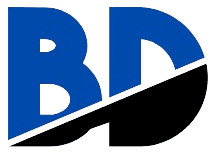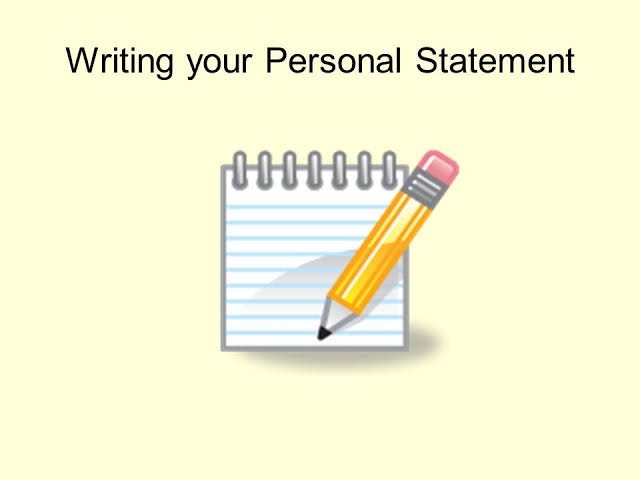As educators, we hold one of the most crucial responsibilities in society: shaping the minds of the next generation. Our profession demands not just knowledge and expertise but also patience, passion, and an unwavering commitment to fostering a love for learning. The keyword educators for 188000 may seem like just a figure, but it represents something much larger — the collective impact we, as a community of educators, have on students worldwide. It’s a reminder of our growing numbers and the critical role we play in building brighter futures.
In this article, we’ll explore what it means to be an educator today, how we can continue to grow in our profession, and why educators for 188000 symbolizes the progress of the education sector. Whether you’re an experienced teacher, a novice entering the field, or someone simply passionate about education, this guide will provide valuable insights into the evolving world of teaching.
The Importance of Educators in Society
At the heart of every thriving community are educators who dedicate their lives to empowering students with knowledge, skills, and values that extend beyond the classroom. An educator’s influence extends well into the personal and professional lives of their students. From the very first day of school to the moment students walk across the graduation stage, educators play a pivotal role in guiding them through challenges, helping them discover
Teaching is more than just imparting academic content; it’s about shaping character, encouraging critical thinking, and preparing individuals to contribute positively to society. Without educators, our world would lack the intellectual and ethical leadership needed to solve global challenges.
As we talk about educators for 188000, we’re referring not just to a number, but to a movement — a growing force of professionals who are committed to making a difference. Every educator, regardless of their specialty or background, contributes to this global network, creating a ripple effect that reaches far beyond the classroom.
Understanding the Concept of “Educators for 188000”
When we mention educators for 188000, it represents a global network of teachers, administrators, counselors, and mentors working together to educate approximately 188,000 students annually. This figure is significant because it highlights the scale of influence educators have on a yearly basis. It’s a reminder that each one of us is part of a vast system that works tirelessly to nurture and develop future leaders, thinkers, and innovators.
But why 188,000? This number could symbolize the average number of students reached by educators in specific regions or educational systems annually. It might also represent a target goal for expanding educational outreach. In any case, the underlying message is clear: educators are a force to be reckoned with, and our impact is growing.
Being part of this network means we’re not working in isolation. We are part of a broader mission to improve education globally, which involves collaborating with fellow educators, embracing new teaching methods, and continually seeking ways to enhance the learning experience for students.
Key Challenges Facing Modern Educators

Teaching in the 21st century presents its own set of unique challenges. As educators, we face obstacles that previous generations could have hardly imagined. These challenges range from integrating technology into the classroom to addressing the diverse needs of an increasingly global student population. Here are some of the most pressing challenges that educators for 188000 are grappling with:
Technological Integration
While technology provides amazing tools for enhancing learning, it can also be overwhelming. Balancing traditional teaching methods with new digital platforms requires ongoing learning and adaptation. Educators must stay up-to-date on the latest tech trends to ensure they’re providing their students with the best possible education.
Addressing Mental Health
More students today are facing mental health challenges, including anxiety, depression, and stress. Educators are often on the front lines of identifying these issues and ensuring students receive the support they need. But this also requires a level of emotional intelligence and training that wasn’t always expected of teachers.
Handling Overcrowded Classrooms
In some regions, particularly in densely populated areas, educators may find themselves teaching in overcrowded classrooms. This can make it difficult to provide individualized attention to students, leading to greater disparities in learning outcomes.
Curriculum Demands
With standardized testing and rigid curricula, educators often find themselves constrained by time and resources. The pressure to meet specific educational standards can sometimes limit creativity in teaching and make it challenging to address the varying learning styles within a classroom.
Despite these challenges, educators remain resilient. The ability to adapt and thrive in the face of adversity is what makes the community of educators for 188000 so powerful.
The Role of Technology in Education
From online learning platforms to interactive digital textbooks, technological tools are reshaping the way educators teach and how students learn. But what does this mean for educators for 188000?
Virtual Classrooms
With the rise of platforms like Zoom, Google Classroom, and Microsoft Teams, virtual classrooms have become the new normal in many parts of the world. This shift allows educators to reach students regardless of geographic location, making education more accessible.
Digital Resources
Gone are the days when teachers were limited to chalkboards and textbooks. Now, educators have access to a vast array of digital resources, including video tutorials, interactive simulations, and online assessments, which can make lessons more engaging and dynamic.
Personalized Learning
Through adaptive learning software, educators can tailor lessons to meet the individual needs of students. These programs analyze a student’s strengths and weaknesses, providing customized resources to help them succeed.
However, with these benefits come challenges. Not all students have equal access to technology, and it’s crucial for educators to find ways to bridge this digital divide. Despite the obstacles, technology remains a powerful tool for educators for 188000, allowing us to create more inclusive and innovative learning environments.
Strategies for Professional Growth as an Educator
As educators, personal and professional growth should be an ongoing priority. To keep pace with the ever-changing educational landscape, it’s essential to continuously develop our skills, whether through formal education, self-study, or collaboration with peers.
Engage in Continuing Education
Pursuing additional qualifications, certifications, or even advanced degrees can enhance your teaching skills and open doors to new opportunities. Many educators are also exploring online courses and webinars as flexible options for professional development.
Participate in Workshops and Conferences
Educational conferences and workshops provide valuable opportunities to learn about the latest trends in education, from curriculum development to classroom management techniques. Networking with other educators can also lead to new insights and collaborations.
Seek Mentorship
Whether you’re a novice or a veteran educator, having a mentor can be invaluable. Mentors can provide guidance, share experiences, and offer constructive feedback to help you navigate the challenges of teaching.
Reflect on Your Teaching Practice
Regular self-reflection is key to professional growth. Take time to analyze your teaching methods, identify areas for improvement, and celebrate your successes. This practice can lead to meaningful changes that benefit both you and your students.
Essential Qualities of Successful Educators
What makes a successful educator? While subject matter expertise is crucial, it’s only one piece of the puzzle. The most successful educators for 188000 possess certain qualities that enable them to connect with their students and inspire a love for learning.
Patience
Every classroom is filled with students who learn at different paces. Patience is vital for providing each student with the support they need to succeed, no matter how long it takes.
Adaptability
In an ever-evolving educational landscape, educators must be willing to adapt. Whether it’s incorporating new technology or adjusting lesson plans to meet the needs of diverse learners, adaptability ensures that educators remain effective and relevant.
Empathy
A successful educator understands that students come from various backgrounds, each with unique challenges. Being empathetic means recognizing these challenges and creating a supportive, inclusive environment for all students.
Passion for Teaching
Students can tell when an educator is passionate about what they do. Passion is contagious, and when teachers are excited about their subject matter, students are more likely to be engaged and motivated.
Building Strong Relationships with Students
Strong teacher-student relationships are the foundation of effective teaching. When students feel respected and valued, they’re more likely to engage in learning and achieve academic success
Show Genuine Interest
Take the time to get to know your students, both academically and personally. Ask about their hobbies, interests, and aspirations. This helps build trust and shows students that you care about their well-being.
Be Approachable
Create an open, supportive classroom environment where students feel comfortable asking questions and seeking help. Being approachable means students see you as a resource and ally, rather than just an authority figure.
Provide Constructive Feedback
When giving feedback, focus on growth rather than criticism. Let students know where they’ve done well and offer suggestions for improvement in a supportive manner. This approach fosters a growth mindset, encouraging students to keep trying even when faced with challenges.
How Educators Can Support Students Beyond Academics
Education is not just about academic success. As educators for 188000, we have a responsibility to nurture the whole student, including their emotional, social, and mental well-being. Supporting students beyond academics helps them become well-rounded individuals.
Promote Emotional Well-being
Create a safe space in your classroom where students feel comfortable discussing their emotions. Encourage open dialogue about mental health and provide resources for students who may need additional support.
Teach Life Skills
In addition to academic content, educators should teach essential life skills like time management, problem-solving, and effective communication. These skills are critical for success in both school and life beyond the classroom.
Encourage Peer Collaboration
Fostering a sense of community among students helps them build relationships and work together effectively. Group projects, peer feedback sessions, and collaborative learning opportunities help students develop interpersonal skills and build strong social connections.
The Impact of Curriculum on Educators
Curriculum plays a significant role in shaping the way educators teach. While it provides structure and ensures that key learning objectives are met, it can also limit creativity and flexibility in the classroom. As educators for 188000, it’s important to find a balance between adhering to the curriculum and adapting it to meet the unique needs of your students.
Curriculum Flexibility
Some educators feel restricted by a rigid curriculum that leaves little room for exploration. However, finding ways to integrate creative lessons within the curriculum can enhance student engagement while still meeting required standards.
Continuous Improvement
Curriculum should not be static. Educators should be actively involved in curriculum development and revision, ensuring that it evolves to reflect the needs of modern students and incorporates diverse perspectives.
Creating an Inclusive Classroom Environment
Inclusivity is at the heart of modern education. Every student deserves a classroom environment where they feel valued, respected, and supported. As educators, it’s our job to create spaces where all students can thrive, regardless of their background, abilities, or identity.
Embrace Diversity
Acknowledge and celebrate the diversity of your classroom. Incorporate culturally responsive teaching practices and materials that reflect the experiences of all students.
Support Students with Special Needs
Inclusion means ensuring that students with special needs receive the accommodations and support they need to succeed. This may involve working with special education professionals to create individualized learning plans and making necessary adjustments to the classroom environment.
Foster a Sense of Belonging
An inclusive classroom is one where every student feels like they belong. Create a sense of community by encouraging collaboration, promoting kindness, and addressing any issues of discrimination or exclusion immediately.
Adapting to the Changing Needs of Education
As educators for 188000, it’s essential that we adapt to these changes, staying flexible and responsive to new trends in education.
Personalized Learning
More educators are shifting toward personalized learning models, where lessons are tailored to the needs and interests of individual students. This approach helps students stay motivated and engaged, leading to better academic outcomes.
Focus on Critical Thinking
In an age of information overload, critical thinking skills are more important than ever. Educators should focus on teaching students how to analyze information, think critically, and make informed decisions.
Emphasizing Social-Emotional Learning
Alongside academic skills, social-emotional learning (SEL) is becoming a priority in many schools. SEL programs help students develop emotional intelligence, self-awareness, and interpersonal skills, all of which are critical for success in both school and life.
Professional Development Opportunities for Educators
Professional development is key to staying current with the latest trends and best practices in education. As educators for 188000, it’s important to take advantage of the many professional development opportunities available, including:
Online Courses and Webinars
Platforms like Coursera, EdX, and Khan Academy offer a wide range of online courses that allow educators to learn new skills at their own pace. Webinars are another great way to stay updated on the latest educational trends and techniques.
Professional Organizations
Joining professional organizations like the National Education Association (NEA) or the International Society for Technology in Education (ISTE) provides access to resources, conferences, and networking opportunities that can enhance your teaching practice.
Collaborative Learning
Collaborating with colleagues, both within your school and across the broader educational community, allows you to share ideas, seek feedback, and learn from one another.
Balancing Work and Life as an Educator
Teaching is a demanding profession, and it can be challenging to find a balance between work and personal life. However, maintaining this balance is essential for preventing burnout and ensuring that you can continue to give your best to your students.
Set Boundaries
Establish clear boundaries between work and personal time. It’s easy to get caught up in lesson planning and grading after school hours, but it’s important to make time for yourself and your family.
Practice Self-Care
Prioritize self-care, whether that means exercising, meditating, or simply taking time to relax.
Seek Support
If you’re feeling overwhelmed, don’t hesitate to reach out for support. Whether it’s talking to a colleague, seeking advice from a mentor, or seeking professional counseling, there are many resources available to help you manage the stresses of teaching.
The Future of the Teaching Profession
The integration of technology, the emphasis on personalized learning, and the growing focus on emotional well-being are just a few of the trends shaping the future of education.
Artificial Intelligence in Education
Artificial intelligence (AI) is already making its way into classrooms, with AI-powered tools offering personalized learning experiences and assisting teachers with administrative tasks. In the future, AI could play an even bigger role in education, helping educators tailor their teaching to the needs of individual students.
Global Collaboration
The internet has made it easier than ever for educators to connect and collaborate with peers around the world. This global collaboration will continue to grow, allowing teachers to share resources, ideas, and best practices on a global scale.
Why Community Support is Essential for Educators
Educators cannot succeed in isolation. The support of parents, communities, and policymakers is essential for creating an educational environment where both teachers and students can thrive. Strong community support helps ensure that educators have the resources, training, and recognition they need to succeed.
Parental Involvement
. Educators should encourage parents to stay engaged by communicating regularly and offering opportunities for involvement.
Community Resources
Many communities offer resources that can enhance education, such as after-school programs, tutoring services, and extracurricular activities. Partnering with local organizations can provide additional support for students.
Unique FAQs About Educators for 188000
1. What does “educators for 188000” refer to?
Educators for 188000 refers to the collective network of educators working to educate approximately 188,000 students annually. It highlights the scale of impact that educators have on a global level.
2. How can educators for 188000 stay motivated?
Staying motivated as an educator involves continuous professional development, collaboration with peers, and finding ways to engage with students on a personal level. Celebrating small successes and maintaining a passion for teaching also help sustain motivation.
3. What tools can help educators for 188000 manage large classes?
Technology, such as learning management systems (LMS), can help educators manage large classes more efficiently. These tools allow teachers to organize assignments, provide feedback, and monitor student progress.
4. What professional development opportunities are available for educators for 188000?
Educators can take advantage of online courses, webinars, conferences, and collaborative learning opportunities. Joining professional organizations also provides access to resources and networking opportunities.
5. How do educators for 188000 handle the challenges of teaching in the digital age?
Educators adapt by staying current with technological trends, participating in professional development, and finding ways to integrate digital tools into their teaching practices. It’s also important to focus on digital literacy and equity to ensure that all students have access to technology.
Conclusion
As educators for 188000, we are part of a growing and impactful community dedicated to shaping the future. Despite the challenges of teaching in the modern world, our influence on students’ lives remains unparalleled. Through adaptability, professional growth, and unwavering passion, we can continue to inspire the next generation, guiding them toward success both in and out of the classroom.













